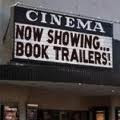B is for Building Blocks
Let me start off by telling you what I am doing during this month of April, besides praying for warmer weather. I've joined 1,000+ writers, authors, etc., for the A-Z Blogging Challenge. Every day, except Sundays, I will be writing on a topic that starts with one of the letters of the alphabet, in order.
Yesterday, I kicked off the challenge showcasing Adele's song lyrics for my Prose from the Pros Friday. (FYI: Since April is National Poetry Month, so I will be showcasing poets every Friday.)
I've made it to day two which is "B" for the building blocks of writing a story.
How do you begin building your stories?
Yesterday, I kicked off the challenge showcasing Adele's song lyrics for my Prose from the Pros Friday. (FYI: Since April is National Poetry Month, so I will be showcasing poets every Friday.)
I've made it to day two which is "B" for the building blocks of writing a story.
BAM!
An idea hits you in the head. You grab your phone or the closest piece of paper to scribble your idea down before you forget it. Then, you make it to your writing area, ready to write. What do you do next?
You start building the world that will allow your idea to grow and flourish. Start with the basic literary elements.
Characters
The characters are in charge of carrying the plot to the conclusion. A writer uses how the character appears, what they do, think, say and how they react to other characters to reveal their personality, life history, values, physical attributes, etc., presenting the reader with a sense of verisimilitude. The characters can determine how the plot develops.
Milieu
The setting of a story creates the environment where the story takes place. Whether it’s on a fictional planet or your favorite bar, it needs to feel real to the reader. Setting influences the characters’ personality, appearance, dialect, etc. and the plot of the story.
Research
Understanding your subject, setting and other elements inside and out aids the development of a story. It gives the writer access to the fictional world, avoiding stalls when information is needed create a strong and realistic narrative. The first draft is stronger with fewer questions in need of answers.
Outline Plot
A clear plan for a story can help a writer determine what type of characters and setting would fit best. It leaves out the guessing. Organized and structured. The outlined plot influences what the characters will have to accomplish to reach the conclusion.
Should you start with one element before another? It all depends on the writer’s preference. Every writer cultivates a system that works for him or her. There is no right or wrong way to develop a story.




Comments
http://sooozsaysstuff.blogspot.com/2011/04/a-z-challenge-day-3-c-crocodile-with.html
How do I start a story? usually with an idea kicked around for several days, then a title after that it's in the lap of the gods. Unfortunately it often goes to the dogs.
http://www.bobscotney.blogspot.com/
For me it's a seed that starts it off. Sometimes two random things that resonate for me from a news story, or a blog. For example, a story about archeologists for hire and a snipped from someone about how animals can be right or left handed. From that random pairing can come a 'What if' and then I'm off to the races.
For BookEnd it started with the feeling I had, at the end of a book I was reading, of sadness for a minor character. This character was so minor that there wasn't a 'resolution' for him at the end. He just ended. So I thought, "what happened to him?" and then "what if he needed to be recycled?" The rest, you (sort of) know!